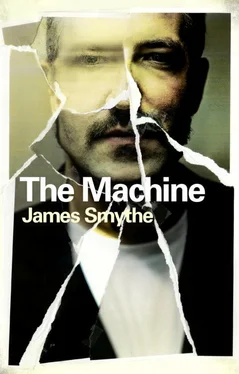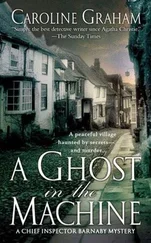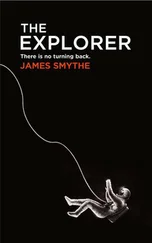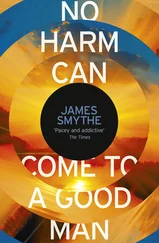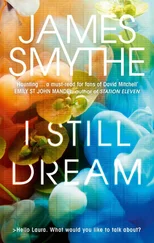What does any childhood memory consist of in the first place? the doctor said. It’s all much of a muchness. Doesn’t impede his education or his learning. This is a different centre of the brain altogether.
So what does it get replaced with? Beth persisted.
Nothing, the doctor said. It’s one of the few times from a patient’s life that can be removed without replacement, because they remember so little of it anyway. She remembers worrying about that: that the Machine would be putting its own nothingness inside him. A computer-created void. Not just nothing, but like the screen, emulating black, to approximate a state of sleep. A created depiction of nothing. She tried to think about her own childhood: what she could call up was colours of things, and toys; an outfit, maybe, something that she wore regularly; a story told to her so many times about a trip to the zoo – about her father dropping her in a urinal, such a funny story, and she remembered it happening; but did she? Or did she actually only remember the story itself, recounted at opportune moments for embarrassment? And when she was older she remembered birthday parties and holidays and single events, but nothing that she could say was defining.
(That was a long-standing argument of the anti-Machine protestors: who were the creators of the Machine to dictate life and death? To dictate creation? When they protested with their placards, they decided to bring God into it, with the capital letter. They fought for the right to say that the creator defined the soul. That we were made in his image. This is the next stage, after clones and gene therapy: we are changing what that image is. Picking and choosing what we keep for ourselves. Only this time it’s not something physical, something transitory and visible. It’s something that defines who we are, as people. As children of God. They argued that the memory was tied to the soul. And if we could tamper with memory, how long before we could tamper with the soul?)
Beth looks at the buttons. Her finger raises, and hovers. If she could do it, what would she say? This stage, the recitation, always took it out of Vic, and he was so strong. She had to pick him up from the sessions. She had to cradle his body, helping him from the car to the living-room sofa after the worst of them. When they took the deepest parts.
She hears her bedroom alarm in the other room. She pulls her finger away from the screen.
I could do it, she tells the Machine. Like she’s warning it. Like, if she did, it would somehow cease to exist.
It’s the last day of term. Before the day has even begun Beth is tired: as she dragged herself to the beach and swam through the cold, every stroke felt harsh and wearing. She drags her feet during the walk to work, to the playground where the big coaches wait to haul them across the water, hundreds of children all desperate to be set loose for the next six weeks. All along the walk she dreams of this going well – of her and Vic, hand in hand, talking like before, everything like before – and she imagines not having to be here any more. Not here, specifically. More the feeling. The sensation of the last few years. The heat is impossible, and worse when she steps onto the coach she will travel in, cheaply reliant on its miniature above-seat fans rather than air conditioning. The children swagger and groan as they take their seats, pre-arranged to avoid chaos. All along the motorway the children sing filthy songs, variations on classics. Replacing the word Love with Fuck. The teachers can’t control them, and there’s no point. If they do, they become the focus of the songs. Easier to let them be 14 and 15 year olds.
London has become a very different city from the one Beth grew up in. The Barrage wall casts much of the Thames into shadow, certainly at the bankside. Time was, sun like this would have rendered the walk alongside the river heaving with people, queuing for the London Eye or sitting on the grass at the front of Tate Modern. Now the South Bank’s nearly empty. The stark concrete of the Barrage doesn’t help matters.
Ugly fucking mound, that, says one of the boys in Beth’s group.
Pubic mound, more like, another says. They all laugh. The first boy isn’t wrong. It looms over them like a dyke of thick mottled cream, tarnished in the last few years from things that have been thrown at it. There are parts where it’s been patched, in case; but the biggest issue is what it does to the view.
Used to be that you’d be able to see the ships, one of the male teachers says, as if the boys will be interested in that, young enough to be fascinated by boats and trains and fire engines still. Ships and boats, up and down. The bridge – he indicates Tower Bridge in the distance – would open and close to let them in and out.
Now it stays up, to accommodate the Barrage’s height. They didn’t expect to have to build the Barrage in the first place, let alone as fast as they did. Beth remembers plans for how beautiful it was going to be, how it was going to complement – their word – the rest of the South Bank, all the way down to Docklands. It was going to be the most practical kind of tourist attraction, that had been the plan. Then they had to rush it or risk losing more of the coast, and that wasn’t an option.
The teachers – seven of them, practically the entire English department – take the children to the Barrage Exhibition Centre, built in what used to be an art museum above a McDonald’s. The children cackle about wanting Big Macs, but they’re corralled through to the different stages of the exhibition. The teachers work efficiently, and soon the kids are watching videos of waves crashing across houses: starting with the hurricanes in New Orleans, in Japan, showing the destruction that they caused. They all go silent when they see these, and when they see the films of the east coast of England, of New York.
In one room, the children line up and stare at a wall of video screens, a wall that curves around them to the sides and above them, across the ceiling. The room falls into blackness and hardly any of the children snigger; and then the sound of water, of screaming. The video begins slowly, blinking in, as if the people in the room are actually standing at the scene, as if this is their eyes; and then they’re suddenly standing on a rooftop, looking down across London as it could be, water troughing the streets. People are screaming through the speakers, begging to be saved; babies are crying, women howling that they cannot reach, a man sobbing that he’s hurt, that he’s trapped. The camera doesn’t move; it just looks around, watching as water starts to fill the city, as a wave brings cars down the streets, hammering through porches, smashing through windows and dredging out belongings. The camera swings around to see the Shard falling in the far distance, the glass smashing, the iron buckling. It looks impossible, and it probably is, but the kids almost uniformly gasp. This is so vivid, Beth thinks. The camera swings back once more, towards the first shot, where the screaming people are now silenced, the streets now empty. There, in the distance, comes a swell of water towards the camera, and the audio starts swelling as well, becoming a cacophony as the water crashes down on the crowd in the room. As it hits, as the camera eye falls backwards, real water, actual water, sprays from some hidden place, and all the teenage girls scream, absolutely caught in the moment. The lights come up, the door opens, and they all laugh and gasp and filter out.
Outside, in the sun, it almost feels like a lie. They all sit on the lawn outside the art museum there and eat the packed lunches that they were given on the coaches, now-warm sandwiches and miniature bags of slightly molten Maltesers. They pose in front of the Barrage wall, all of them, for a photograph which some of the nicer girls print out on their sticker-printers and give to Beth, placing it delicately onto her bag. They run around, playing bulldog on the lawn, boys and girls alike, tearing each other down, tackling each other to the floor. When they’re all finished – and a group of boys who had snuck off and bought burgers instead have been rounded up – they walk down the river towards the Globe theatre. They file inside and are immediately less interested, lost by the presentation that they’re given by the actor who plays Caliban, even though he’s got his makeup on and looks suitably hideous. There’s no air conditioning in the theatre, and the ground seems to be giving off just as much heat as the sun. They sweat and swat gnats as Caliban talks to them.
Читать дальше
Конец ознакомительного отрывка
Купить книгу
